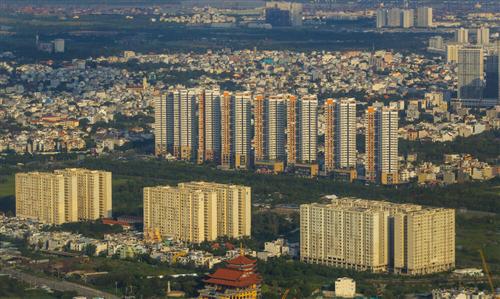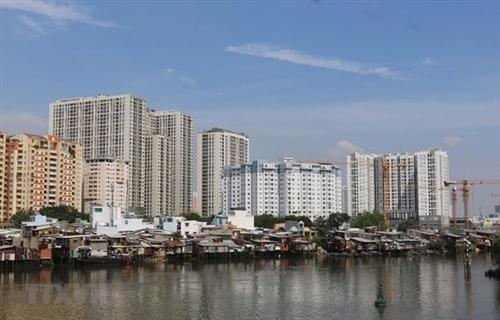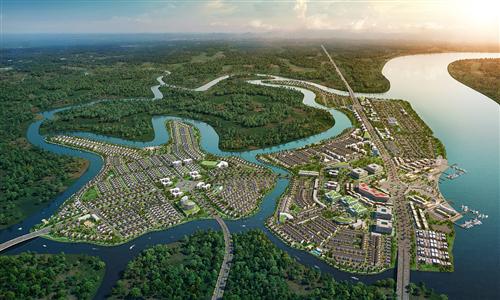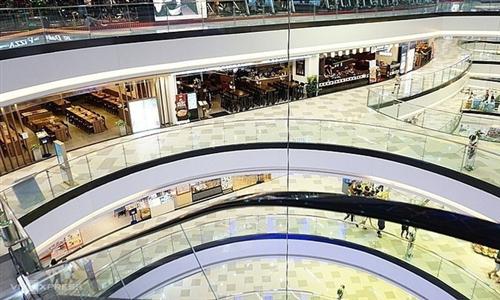Apartments for sale in Ho Chi Minh City drop to five-year low
Apartments for sale in Ho Chi Minh City drop to five-year low
Impacted by limited new supply, the number of apartments for sale in Ho Chi Minh City was down 42 per cent in the first quarter of this year compared to the same period of last year, hitting the lowest level in the past five years.
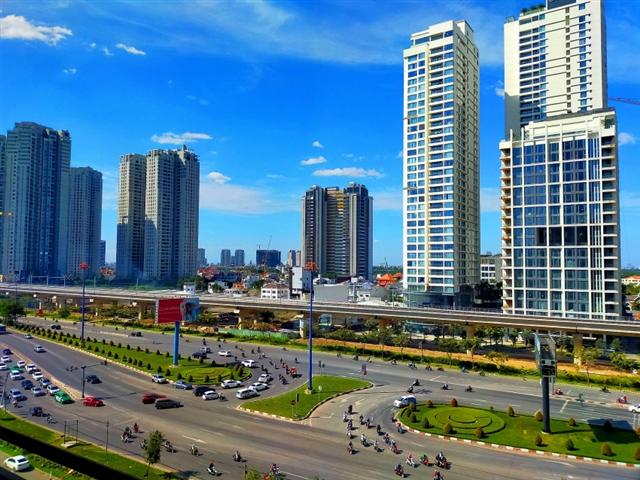
The low point in apartment prices in Ho Chi Minh City offers good opportunities for cash-rich buyers and investors (Photo: Le Toan)
|
According to Savills Vietnam, only three new projects opened bookings before Tet and were officially launched before the COVID-19 lockdown. These are D’lusso and Citigrand in District 2 and the West Gate in Binh Chanh districts, all of which have achieved an average 79 per cent take up rate right before the lockdown.
Nguyen Khanh Duy, director of residential sales at Savills' Ho Chi Minh City office, said that with a solid equity background, there appears to be little defaulting or delays to payment schedules for apartments in the coming time, despite of the COVID-19.
The number of units sold in the entire Ho Chi Minh City market dropped by 32 per cent on-year to just slightly more than 4,700 units.
With the majority of 2020 sales taking place prior to the pandemic in January and February, absorption was positive at over 50 per cent.
However, social distancing and tourism restrictions decelerated rental demand in Ho Chi Minh City.
By the end of the first quarter of 2020, all grades of affordable, mid-, and high-end apartments have suffered from drops in rental yield with a drop of 4 per cent for Grade A and 5.2 per cent for Grade B. Those rates were around 6-8 per cent in 2019 and before.
In the coming quarters, with national borders closed, timelines being uncertain, and buyers being more cautious, rental demand and investor purchasers will be affected. Yields will continue to be pressured in the near term.
From 2021, however, indicators suggest improvements in Grades A and B, with low buy-to-let stock levels and rental demand expected to recover with COVID-19 under greater control.
Over the short-term, the secondary market may come under pressure from outstanding debts. A Savills study of 40 Grade A and B projects showed levels of outstanding purchase contract payments will increase and peak in the first quarter of 2021.
The impact on personal incomes has resulted in increasing numbers of short term investors who are unable to meet their instalments, in turn pressuring secondary prices. However, in reviews of specific high-end developments, virtually all payment schedules have been maintained, with no defaults or extensions required so far. For cash-rich investors however, lower prices and illiquidity present long-term opportunities.
Social distancing is affecting developer sales strategies, but the biggest effect is on buyer behaviour.
Having healthcare, essential services, and education nearby and minimising travel has become increasingly relevant, and high-end buyers will favour smaller, less densely built, and more private developments with good amenities.
Most major developers have postponed launches or ramped up online sales efforts. Anticipated stock until 2022 is over 147,800 units, 60 per cent of which will be made by a dominant Grade C segment.
The government-led stimulus, including an emergency interest rate cut, and willingness of mortgage lenders will help mitigate the effects of COVID-19.
Developers may increasingly use their balance sheets to provide extended terms or debt to maintain competitive marketing. Decreasing household sizes and steady 2 per cent per year population growth in Ho Chi Minh City will also help boost longer-term recovery.








